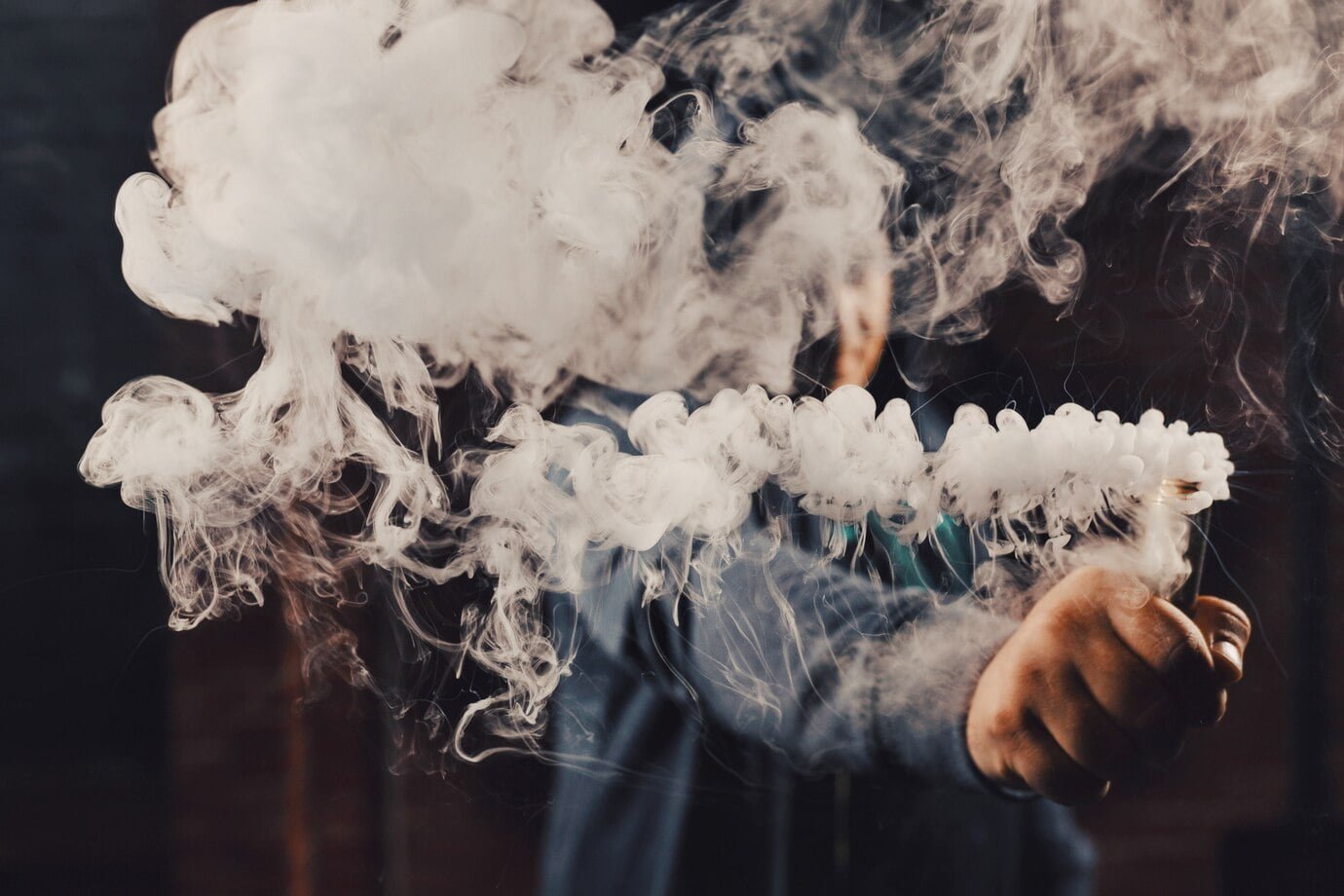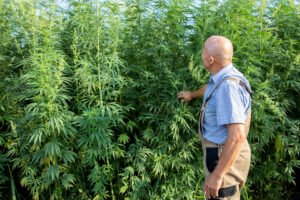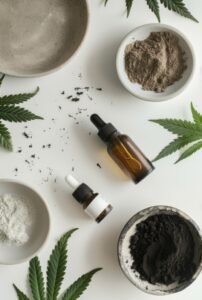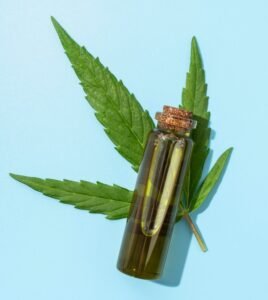Does Delta 8 Go Bad?
Does Delta 8 Go Bad? Delta 8 THC is a cannabinoid derived from the hemp plant, sharing similarities with Delta 9 THC, the…
Does Delta 8 Go Bad?
Delta 8 THC is a cannabinoid derived from the hemp plant, sharing similarities with Delta 9 THC, the compound popularly known for its psychoactive effects. However, Delta 8 offers a slightly different experience, providing a milder euphoria and reduced anxiety, making it an appealing alternative for those seeking the therapeutic benefits of cannabis without the intense high.
The unique properties of Delta 8 have contributed to its surging popularity within the cannabis community. Enthusiasts appreciate its balanced effects, which can contribute to relaxation, pain relief, and an overall sense of well-being. As more individuals explore the potential benefits of cannabinoids, Delta 8 has emerged as a noteworthy option.
Legally, Delta 8 resides in a complex gray area. Following the federal legalization of hemp under the 2018 Farm Bill, it is generally derived from legal hemp and contains less than 0.3% Delta 9 THC. Despite this, legal status can vary significantly across states, with some adopting more restrictive measures against Delta 8 products. Consumers are advised to stay informed about their local regulations to responsibly enjoy Delta 8’s benefits.
As its popularity skyrockets, a critical question surfaces for consumers: does Delta 8 go bad? Understanding the shelf life and proper storage methods for Delta 8 THC products is essential. Whether it’s a tincture, gummy, or vape cartridge, knowing how to store these products can ensure efficacy and safety. In this blog, we will delve deeply into the factors affecting Delta 8’s longevity and provide guidelines to maintain its potency, offering you a well-rounded perspective on this increasingly popular cannabinoid.
Shelf Life of Delta 8 Products
The shelf life of Delta 8 products can vary widely depending on several factors, including the specific type of product, how it is packaged, and the quality of its manufacturing. Typically, Delta 8 THC products such as cartridges, tinctures, edibles, and flowers are designed with longevity in mind, but understanding their storage needs is crucial to maintaining their potency and safety over time.
Delta 8 THC cartridges generally have a shelf life of about one to two years. They are often housed in airtight containers that minimize exposure to air and light, both of which can degrade the cannabinoid. Tinctures, another popular form of Delta 8, also boast a similar shelf life when stored correctly in a cool, dark place. Edibles, however, tend to have a shorter shelf life of around six months to a year, largely due to the perishable ingredients they contain. To maximize the shelf life of Delta 8 edibles, it is recommended to store them in a refrigerator or freezer.
Delta 8 flowers have a shelf life more akin to traditional cannabis flowers, approximately six months to a year, if kept in optimal conditions. Humidity and temperature control are decisive factors for flower storage, with the ideal environment being a relative humidity between 59-63% and a temperature around 70°F (21°C). Exposure to oxygen can significantly degrade quality and potency, so using airtight containers is advisable.
Packaging design plays a pivotal role in the shelf life of Delta 8 products. Vacuum-sealed packaging or those with desiccants and oxygen absorbers can considerably extend the product’s lifespan by reducing the exposure to factors that degrade cannabinoids. Furthermore, the quality of manufacturing, which includes the purity of the chemical extraction process and the absence of contaminants, directly impacts the longevity and efficacy of Delta 8 products. High-quality manufacturers rigorously test for contaminants and purity, which contributes to a longer-lasting and more effective product.
Scientific studies and expert opinions consistently underscore the importance of proper storage conditions for maintaining the stability of Delta 8 products. According to the National Center for Biotechnology Information (NCBI), improper storage can lead to the degradation of cannabinoids, resulting in diminished potency and possible production of harmful by-products. Therefore, consumers should always follow manufacturer guidelines and storage instructions to ensure they get the maximum benefit from their Delta 8 products.
Signs That Delta 8 Has Gone Bad
Understanding the signs that Delta 8 products have degraded is crucial for consumers to ensure they are using safe and effective products. One of the most noticeable indicators of Delta 8 going bad is a change in color. Fresh Delta 8 typically has a clear or light amber color, but as it ages, it can darken significantly, often turning brown or even black. This color change is indicative of oxidation processes that reduce the quality and potency of the Delta 8.
Texture is another aspect to monitor. For instance, Delta 8 gummies should be soft and chewy, but over time, they can become hard and brittle. Similarly, Delta 8 oil or tincture may become thicker and even somewhat clumpy if it has degraded. Both of these texture changes are signs that the product has lost its freshness and may no longer be safe to consume.
Smell and taste are equally important sensory indicators. Fresh Delta 8 products usually have a mild, earthy aroma, without any off-putting smells. If you notice a rancid, musty, or sour smell emanating from your Delta 8 product, it’s likely that the product has gone bad. The taste should be consistent with past experiences; any bitter, metallic, or otherwise unpleasant flavor is a red flag. For instance, Delta 8 vape carts that produce a burnt or strange taste upon inhalation should be discarded immediately.
Chemically, Delta 8 can degrade under poor storage conditions, such as exposure to light, heat, and air. Real-life case studies demonstrate that storing Delta 8 in a cool, dark place can significantly extend its shelf life. For example, a consumer reported that a Delta 8 tincture left exposed on a windowsill for a few weeks turned darker and developed an off smell, whereas another tincture stored in a dark drawer remained in good condition over several months.
Consumers should be vigilant and regularly check their Delta 8 products for these signs of degradation. This due diligence will help ensure that the products remain potent and safe for consumption.
Proper Storage Methods for Delta 8
Proper storage is essential to maintain the potency and quality of Delta 8 products over time. Several factors, including temperature, humidity, light exposure, and container types, influence the shelf life of these cannabinoid products. By adhering to optimal storage conditions, consumers can ensure that their Delta 8 remains effective and safe for use.
Firstly, temperature control is crucial. Delta 8 should be stored in a cool environment, ideally between 60 to 70 degrees Fahrenheit. Excessive heat can degrade the compound, resulting in decreased efficacy. Refrigeration is an option, but freezing is generally not recommended as it can cause the oil to crystallize, affecting its consistency.
Humidity levels should also be regulated. Storing Delta 8 in a dry place is important to prevent the growth of mold and mildew. Humidity levels around 50% are considered optimal. Utilizing desiccants like silica gel packs can help absorb moisture from the storage environment, ensuring the product remains dry and free from contaminants.
Light exposure, particularly UV light, can degrade Delta 8 over time. To protect the product from light, it is advisable to use opaque or tinted containers. Glass containers, especially those with UV-proof coatings, are excellent choices. Additionally, storing Delta 8 in a dark cupboard or drawer further minimizes light exposure.
The type of container used for storage also plays a significant role in preserving Delta 8. Airtight containers are preferable, as they prevent oxygen from compromising the product’s quality. Many consumers opt for childproof containers for added safety. Glass jars with secure lids or vacuum-sealed bags are highly recommended.
Several products and tools can assist consumers in storing Delta 8 properly. Humidity control packs, UV-blocking storage bottles, and temperature-regulated storage boxes are some of the specialized options available. These products offer the added benefit of convenience and effectiveness, ensuring that Delta 8 products retain their potency for a longer period.
In summary, maintaining the efficacy of Delta 8 requires attention to storage conditions. Keeping the product in a cool, dry, and dark environment within an airtight container will significantly extend its shelf life. By employing specific storage tools, consumers can maximize the benefits of their Delta 8 products.
Effects of Improper Storage on Delta 8 Potency
Improper storage of Delta 8 can significantly impact its potency and overall effectiveness. When Delta 8 is exposed to unfavorable conditions, such as extreme temperatures, light, and humidity, it undergoes several chemical changes that degrade its quality. These factors can lead to the breakdown of Delta 8 molecules, rendering the compound less effective and reducing its potential benefits.
One critical factor influencing Delta 8’s potency is temperature. High temperatures can accelerate the degradation of cannabinoids, including Delta 8. Exposure to heat can cause the compound to lose its stability and convert into other, less potent substances. A study published in the Journal of Pharmacy and Pharmacology demonstrated that cannabinoids are particularly sensitive to heat, which can lead to the formation of byproducts that are not as effective as Delta 8 in terms of therapeutic properties.
Light exposure is another detrimental factor affecting Delta 8. Ultraviolet (UV) light can cause the molecular structure of Delta 8 to break down, leading to oxidation. Oxidation results in the loss of cannabinoid potency and effectiveness. Researchers have found that cannabinoids stored in dark containers or areas with minimal light exposure retain their potency for longer periods compared to those exposed to light.
Humidity also plays a crucial role in maintaining Delta 8’s integrity. High levels of humidity can cause moisture to penetrate the storage container, leading to the growth of mold and mildew. These contaminants can compromise the safety and quality of Delta 8 products. Conversely, very low humidity can cause the product to dry out, resulting in the loss of essential oils and terpenes that contribute to the overall effectiveness of Delta 8.
In essence, proper storage is essential to preserving the potency and efficacy of Delta 8. Keeping it in a cool, dark, and dry environment can help maintain its chemical stability and ensure that users can benefit from its full therapeutic potential.
Comparing Delta 8 with Other Cannabinoids
When discussing the longevity and storage needs of cannabinoids, it is crucial to draw comparisons between Delta 8, Delta 9 THC, and CBD. Each of these compounds shares a common origin but exhibits unique characteristics that influence their shelf life and preservation methods.
Delta 8 THC, like its more well-known counterpart Delta 9 THC, is sensitive to light, heat, and oxygen. Exposure to these elements can hasten degradation, leading to reduced potency and effectiveness. Proper storage in a cool, dark place, preferably in an airtight container, is essential to maintain its integrity over time. This approach ensures that Delta 8 products remain effective for several months to a year, depending on the specific formulation and storage conditions.
Similarly, Delta 9 THC also requires careful storage under similar conditions. Both forms of THC are prone to oxidation, which can convert them into less psychoactive or non-psychoactive compounds, diminishing their desired effects. Thus, ensuring minimal exposure to air and maintaining a stable, cool environment are critical for preserving their shelf life.
On the other hand, CBD exhibits a relatively more stable profile but still demands careful storage. While CBD is less susceptible to degradation compared to both Delta 8 and Delta 9 THC, it is not impervious to environmental factors. To extend the shelf life of CBD products, it is advisable to follow the same storage guidelines: keeping them in a cool, dark place, away from light and heat sources.
One unique consideration for Delta 8 is its relatively recent rise in popularity, leading to ongoing research and evolving best practices for storage and usage. As the cannabinoid industry continues to grow, so will our understanding of optimizing the shelf life of Delta 8 products. However, the fundamental principles of preserving cannabinoids—stable temperatures, minimal light exposure, and airtight storage—remain consistent across Delta 8, Delta 9 THC, and CBD.
Frequently Asked Questions (FAQ)
Understanding the shelf life and storage requirements of Delta 8, THCA, and CBD can help in maintaining their efficacy and safety. Here are some frequently asked questions to provide clarity on these topics.
1. How long does Delta 8 last?
The shelf life of Delta 8 largely depends on its form and how it is stored. Generally, Delta 8 can last anywhere from 1 to 2 years when stored under optimal conditions. Factors such as exposure to light, heat, and air can significantly reduce its potency over time. Storing Delta 8 products in a cool, dark place can help extend their shelf life.
2. What are the best storage conditions for Delta 8?
The best way to store Delta 8 products is in a dark, airtight container. This helps in minimizing exposure to light and air, which are primary degraders of Delta 8. A cool and dry environment is ideal; therefore, placing them in a refrigerator can further enhance their longevity. Always ensure the container is sealed properly to avoid moisture ingress.
3. Can Delta 8 degrade over time?
Yes, Delta 8 can degrade over time, especially if stored improperly. Exposure to heat, light, and air leads to the oxidation of cannabinoids, which can reduce their potency and effectiveness. Visible changes in color, consistency, and smell are indicators that Delta 8 may have degraded.
4. Is there an expiration date on Delta 8 products?
Most Delta 8 products come with an expiration date or a “best by” date provided by the manufacturer. It’s crucial to adhere to these dates as they indicate the period within which the product is expected to maintain its potency. Using products past their expiration date may result in reduced efficacy.
5. Can you freeze Delta 8 to extend its shelf life?
Freezing Delta 8 is not generally recommended, as extreme cold can cause the product to lose its potency and degrade the cannabinoids’ quality. Instead, a consistent cool temperature, such as that found in a refrigerator, is advisable for prolonged storage.
For more detailed information, it’s beneficial to reference authoritative sources on cannabinoid storage practices, such as those provided by expert industry websites and scientific studies in the field.
Conclusion and Additional Resources
In conclusion, understanding the shelf life and storage of Delta 8 is crucial for ensuring that this compound remains effective and safe for consumption. Proper storage conditions, such as keeping Delta 8 products away from direct sunlight, heat, and excess moisture, can significantly extend their usability. The optimal storage environment proves essential to maintaining the compound’s quality and potency over time.
Keen attention to Delta 8’s shelf life can prevent potential degradation of the product, which directly influences its efficacy. By adhering to the recommended storage guidelines, consumers can maximize the benefits offered by Delta 8, including its sought-after effects and therapeutic perks. Given that degradation and contamination are avoidable with appropriate care, mindful storage is imperative.
For those eager to dive deeper into the details surrounding Delta 8, including its comparison with other cannabinoids like CBD and THCA or its therapeutic potential, numerous resources are available. Several reputable sources provide extensive information on the subject, offering valuable insights backed by scientific evidence. For further reading, consider visiting:
- National Center for Biotechnology Information (NCBI) – Cannabinoid Therapeutics: Potential and Challenges
- PubMed – Stability of Cannabinoids in Medical Cannabis Products
- CBD Storage Guide by CBDmd
- Project CBD – Storage Tips and Best Practices for CBD Products
These resources are invaluable for gaining a well-rounded understanding of Delta 8 and other cannabinoids, ensuring consumers and enthusiasts alike are well-informed about the best practices for maintaining the quality of their products. By consulting scientific studies and authoritative pages, readers can enhance their knowledge and optimize their experience with Delta 8 and other cannabinoids.







